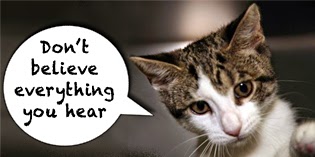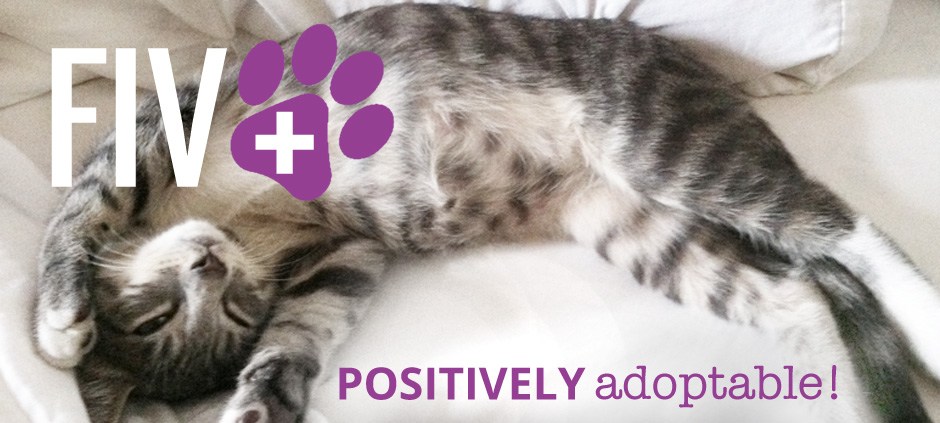All About FIV-Feline Immunodeficiency Virus

Feline Immunodeficiency Virus (FIV) is an often misunderstood condition. FIV is a lentivirus, which means it moves very slowly, and it gradually affects a cat’s immune system. It is passed from cat to cat through blood transfusions and serious, penetrating bite wounds. FIV cannot be transmitted to humans.
There are a lot of misconceptions about this virus, and contrary to what many people believe, FIV cats can live long, healthy lives if cared for properly. FIV is NOT “feline AIDS”. Let us say that one more time… FIV IS NOT FELINE AIDS! Below is information about this virus to provide a better understanding of Feline Immunodeficiency Virus.
Question: Can FIV be spread through casual contact, such as cats sharing the same food or water bowls, or cats grooming each other?
NO! FIV is transmitted to other felines primarily through deep, penetrating bite wounds. Casual contact of cats living in the same household does not spread the virus. On rare occasions, the virus can be transmitted from a mother cat to her kittens, usually during passage of the kittens through the birth canal, or when they ingest infected milk.
- FIVis not easily passed between cats and cannot be spread casually.
- It is not passed by sharing of food or water dishes, grooming each other, litter boxes, mock fighting, scratches, no even sneezes.
Question: Do cats infected with FIV show symptoms immediately?
NO!: Infected cats may be asymptomatic for years.
A cat who contracts FIV will usually still have a strong immune system for several years after infection, it is only over time, that the effects of the virus may start to show, and even then, most infections can be treated with the appropriate medications. With love and good care however, many FIV+ cats can live normal lifespans. These days, it’s not unusual to find FIV+ cats reaching 15 years or more. Knowing what we now do of the prolonged nature of the condition, euthanasia is totally inappropriate and inhumane.
Question: Is FIV treatable?
No, but it is manageable: While there is no cure for FIV, the disease can be managed by keeping FIV positive cats indoors, providing a healthy, balanced diet, and regular, at least bi-annual veterinary checkups. Vigilance and close monitoring of health and behavior is even more important in cats with FIV.
Question: Can FIV cats live long happy lives?
YES!: Many cats with FIV live well into their teens if they are receiving proper care and monitoring throughout their lives.
An FIV infection shouldnt be alarming, and it is not necessary to get rid of a cat who tests positive. FIV+ cats are often some of the sweetest cats you will ever meet!
Question: Can FIV+ cats live alongside FIV- cats safely?
YES!: The most recent research carried out at Glasgow University’s Companion Animal Diagnostics indicates that the chances of FIV being passed from one cat to another in the same household is approx 1-2%.
The Celia Hammond Animal Trust have been conducting a long-term study at their sanctuary since the late 1990’s, where FIV-positive and FIV-negative cats live happily together, grooming each other and sharing food bowls and litter trays. Regular blood tests for the virus are carried out, and to date no cases of transmission have yet been found. Cats are far more at risk of being bitten by an unknown feral or stray FIV positive cat than by a friendly, neutered, FIV positive cat living as part of the family.
There seems no reason, therefore, not to have friendly FIV positive and negative cats in the same household.


